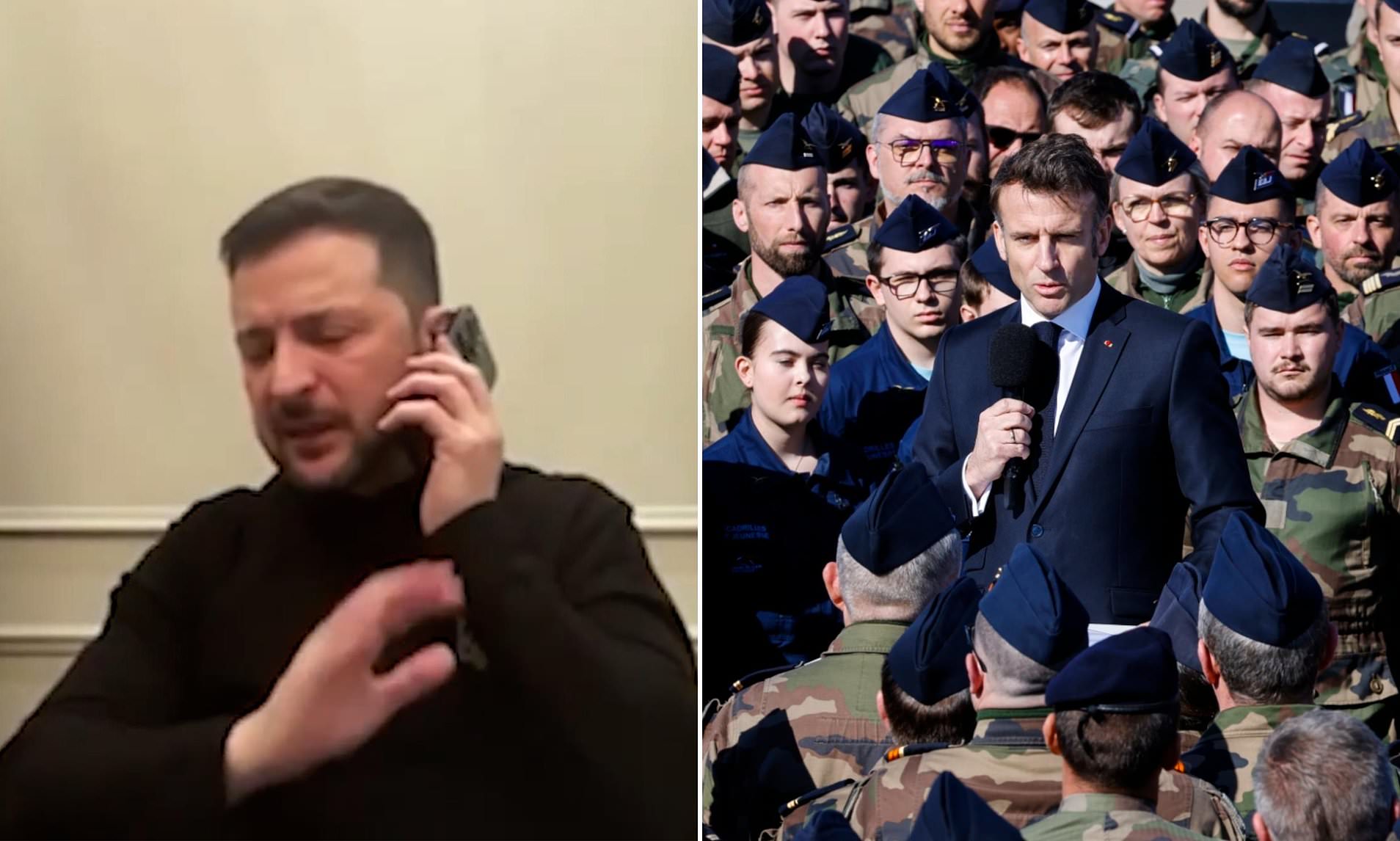Volodymyr
Zelensky
had convened a press briefing at
Kyiv
the day before, when he was disrupted by a telephone call coming directly from his French colleague,
Emmanuel Macron
.
Interrupting the conference to take a call, the Ukrainian President courteously remarked: “Excuse me, Emmanuel… I just need to speak with some reporters.”
Could I call you back in about 15 to 20 minutes? Thanks, Emmanuel.
Moments later, Zelensky told journalists: ‘We have close relations between our countries. He helps a lot. I am very grateful to him.
I’ll reach out to him again following our discussion,” he stated, guessing that he converses with Macron “roughly once daily.
The ill-timed telephone call arrived as
British Prime Minister
Sir
Keir Starmer
ready to initiate the construction of Britain’s upcoming fleet of nuclear-powered ballistic missile submarines (SSBNs).
Sir Keir is set to visit Barrow later today.
to set the keel of HMS Dreadnought
one of multiple new ships set to assume the role of maintaining Britain’s constant maritime nuclear deterrent in the 2030s.
He will subsequently hold a private session with top European military officials to deliberate on the upcoming defense strategies.
Ukraine
As the so-called ‘ coalition of the willing’ comes together.
Starmer and Macron have spearheaded talks about ensuring Kyiv’s long-term safety within Europe, developing a strategy that might involve deploying tens of thousands of peacekeeping forces throughout Ukraine, even though this has been met with caution from Vladimir.
Putin
.
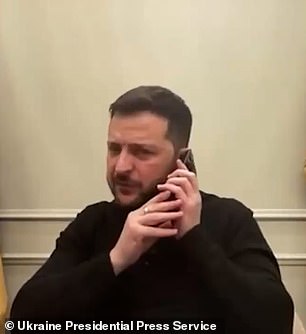
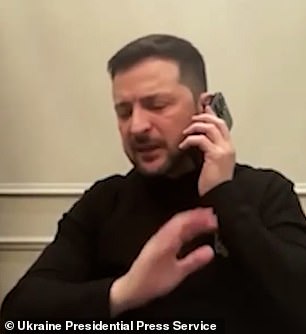
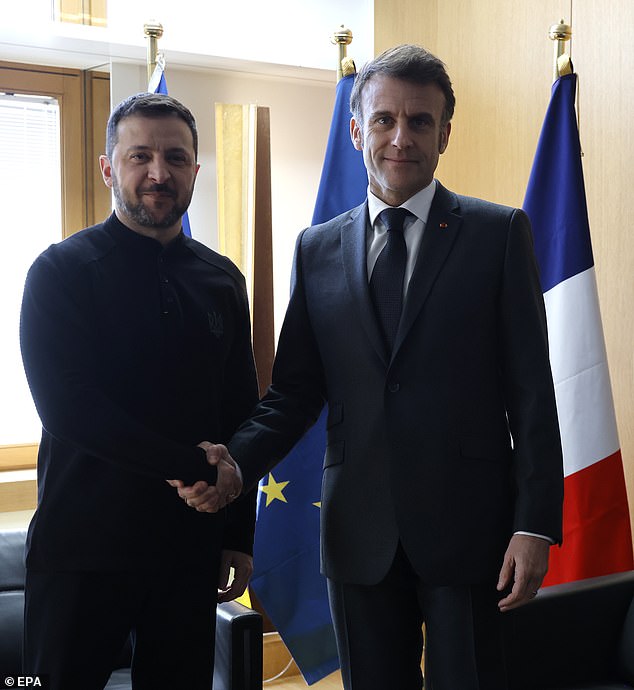
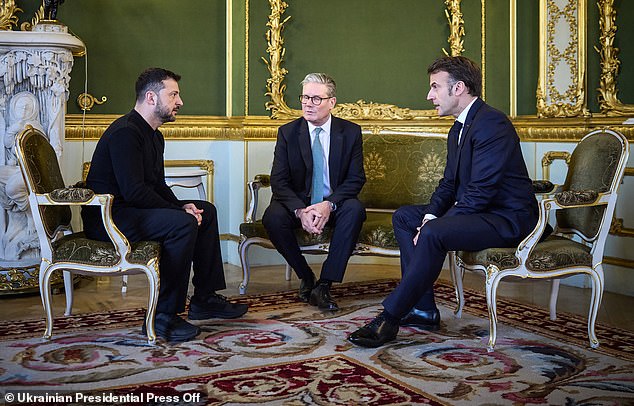
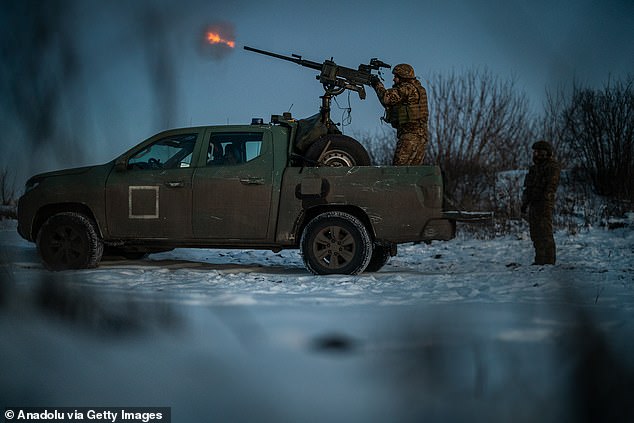
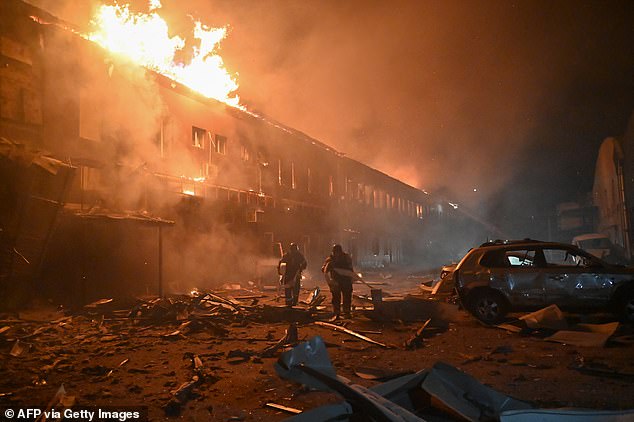
Speaking on
BBC
This morning, Britain’s Armed Forces Minister Luke Pollard stated that they aim for the alliance to form a ‘credible force’ enabling Ukraine to achieve ‘a sustainable peace’ and subsequently ‘reorganize and reinforce their military’.
If Putin emerges victorious in Ukraine, he won’t cease his actions. Should he manage to conquer all of Ukraine—which has long been his objective—he will merely regroup and seek out new areas to expand his control and dominance.
‘Our nation has no stake in this matter, and neither do our European allies have any interest in it,’ he stated.
The details of the plan have not been disclosed yet, but it is believed that Britain will be involved.
France
And other European nations would assume the duty of protecting Ukraine on-site after a ceasefire agreement between Kyiv and them.
Moscow
.
The Ukrainian military would oversee a demilitarized area along the entire front line, with soldiers from an Anglo-French ‘reassurance force’ also present.
deployed at crucial infrastructure locations throughout the nation
.
NATO
Air and naval forces will similarly carry out surveillance operations over Ukraine and within the Black Sea region.
Theoretically, the purpose of having Western troops present is to prevent potential Russian aggression in the future. Their security would be guaranteed by keeping US combat aircraft and missiles ready for action in Eastern Europe as an ‘insurance policy’.
The American backstop would come into play to guarantee that ‘any forces sent will not face challenges from Russia,’ according to officials familiar with the plans.
However, there are concerns that the US under
Donald Trump
might decline to offer aerial support, whereas Russia has stated that Western forces sent into Ukraine would be considered combatants.
The White House’s seeming reluctance to support European security has sparked a new era of armament throughout the EU.
Macron has proposed increasing France’s defense budget twofold throughout his presidency and most recently aimed even higher, stating that the nation should boost defense expenditure to 3-3.5% of its GDP from the present 2%.
Earlier this week, he went to a French air force base close to
Germany
to declare
combat aircraft fitted with advanced hypersonic nuclear weapons
Would be posted there as part of a restructuring of France’s aerial nuclear deterrence force.
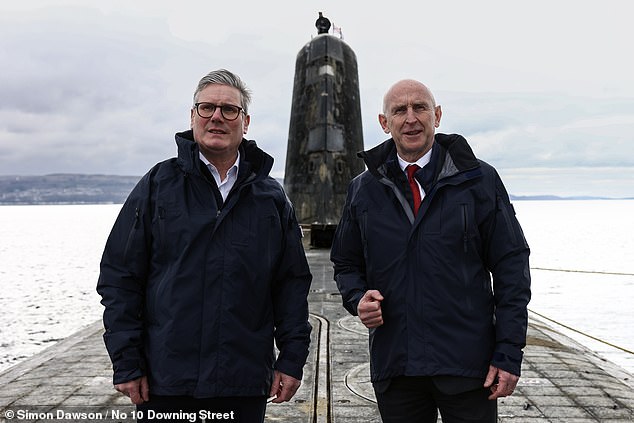
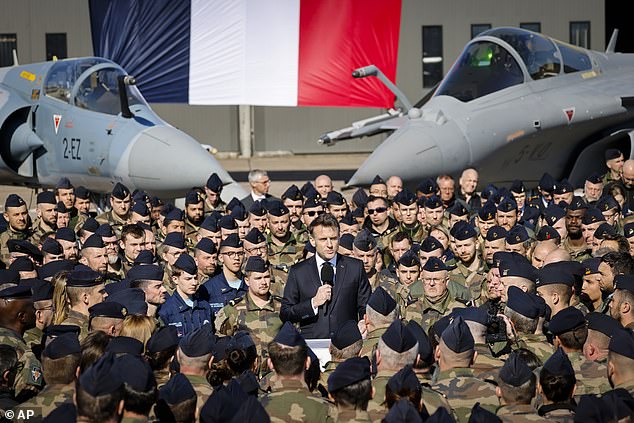
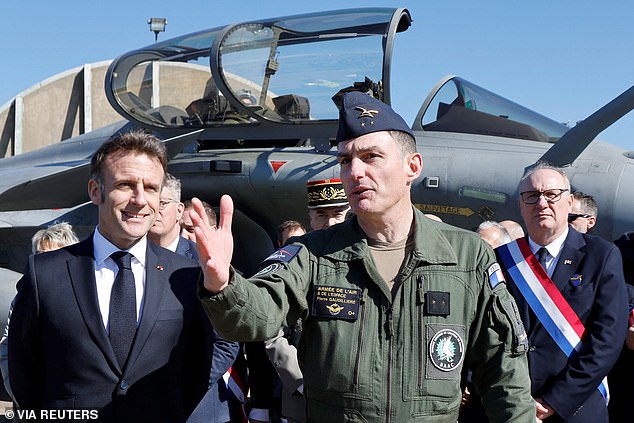
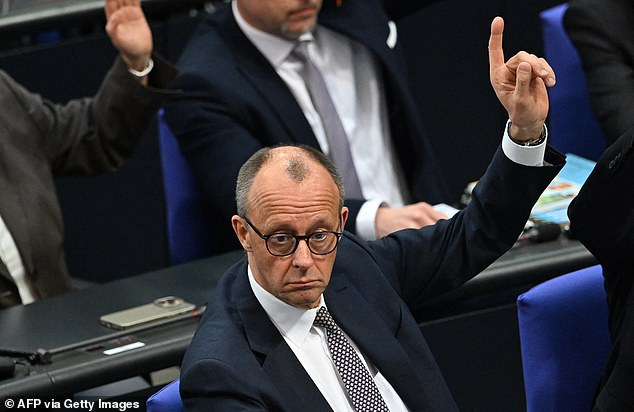
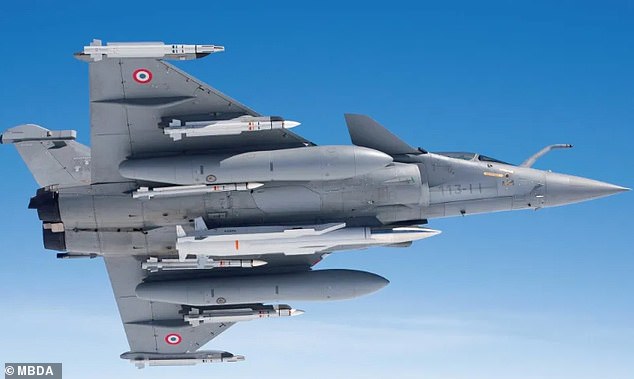
“We didn’t wait until 2022 or the current shift to realize that the world we inhabit has grown increasingly perilous and unpredictable, and that it necessitates innovation, strengthening our capabilities, and becoming more self-reliant,” he stated on Tuesday.
“In the upcoming weeks, I will unveil fresh investment plans to surpass what has been achieved in the last seven years,” he stated, mentioning that the administration intends to purchase extra Rafale combat aircraft from the French company Dassault Aviation to substitute for the aging Mirage fighters — some of which have already been dispatched to Ukraine.
Macron has also
offered to expand the safeguarding provided by France’s nuclear arms
, the so-called nuclear umbrella, to other European countries.
In the meantime, the German parliament has endorsed a proposal put forward by incoming Chancellor Friedrich Merz aimed at significantly boosting expenditure with the objective of stimulating economic recovery and increasing defense budgets.
Following the worldwide financial downturn in 2008, Germany introduced what was referred to as a ‘debt brake,’ which significantly limited governmental debt accumulation.
However, this move, which has been regarded as a crucial economic safeguard for a long time, faced criticism in recent months due to concerns that it might hinder Germany’s ability to significantly boost its defense expenditure.
Currently, Merz’s conservative party and Scholz’s Social Democratic Party (SPD), which are negotiating to establish a centrist alliance following last month’s elections, aim to eliminate the debt ceiling and set up a €500 billion fund. This initiative seeks to enhance Germany’s infrastructure and boost its defense industry capabilities.
“We have been experiencing a misleading sense of safety for approximately ten years,” Merz stated to legislators before the voting took place yesterday.
“The choice we make today regarding defense preparedness must amount to nothing short of the initial significant move toward establishing a new European defense community,” he stated.
The bill must still be sent to the Bundesrat upper house for an additional vote on Friday, though it is anticipated to be approved.
Following the Bundestag’s approval of the expenditure plan, Merz stated succinctly: “Germany is back.”
The vote garnered extensive approval from Europe’s allies as well, notably from Macron. After his visit to Luxembourg, he joined forces with departing German Chancellor Olaf Scholz for a shared press briefing.
“I would like to commend you on the historical vote in the Bundestag, as this is positive news both for Germany and for Europe. It will allow greater efforts towards defense and investments,” he stated to journalists.
Scholz, who was speaking alongside Macron, stated that by ‘bolstering the European component of NATO, we will reinforce the entire transatlantic alliance.’
European Commission President Ursula von der Leyen stated that the approval from the German parliament for the expenditure plan was “great news” as it clearly indicates to Europe that Germany is committed to significantly increasing investments in defense.
Read more
